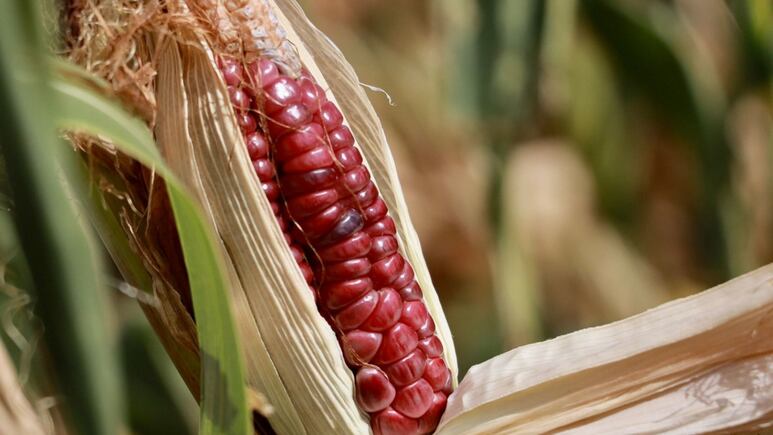Panel on GM corn controversy, between food sovereignty, scientific evidence and trade tensions
Mexico’s decision to ban the use of GM corn for human consumption, particularly in tortillas and dough, was promoted by former President López Obrador

The dispute over GM corn between Mexico and the United States is about to reach its peak. The resolution that will be announced in November will set a precedent in the trade relationship between the two countries. Mexico’s decision to ban the use of genetically modified corn for human consumption, particularly in tortillas and dough, was promoted by former President López Obrador to protect native varieties of corn and under the argument of possible impacts on human health, and endorsed by President Claudia Sheinbaum, from the first speech she gave as the country’s leader.
Publicidad
In her remarks during her inauguration, Claudia Sheinbaum reiterated the position of the Mexican government, which for a year has based the decision on the protection of biodiversity, as well as on guaranteeing food security without depending on products that could compromise health or the environment. The next ruling by the panel on the controversy will be crucial in defining the future of agricultural trade between Mexico and the United States, and will have to reconcile positions that include the arguments of the federal administration, or of organizations such as Greenpeace that advocate for the defense of native corn in Mexico against the pressure to allow genetically modified corn in the basic diet of Mexicans, promoted by the US, whose experts refute that there is no scientific evidence of possible damage to human health.
But the commercial side of the controversy cannot be ignored, Mexico’s imports from the United States almost reach 19 million tons of yellow corn, and most of it is transgenic product, which is used for livestock feed.
The ban on transgenic corn for human consumption does not directly affect these imports, but it has generated commercial tensions that could have repercussions in other agricultural sectors. According to data from the Ministry of Economy, agri-food trade between the two countries exceeded $44.87 billion in 2023, with corn as one of the main products.
Publicidad
If the panel rules in favor of Mexico, the country will be able to maintain its ban on genetically modified corn for human consumption, reinforcing its position of food sovereignty and protection of native varieties. This result would be welcomed by environmental and public health advocates, who have insisted on the possible long-term risks of consuming genetically modified organisms, and who assure that given the quantities of white corn consumed by Mexicans, as the basis of their diet, there are legitimate concerns.
Publicidad
On the other hand, if the panel decides that the ban violates the terms of the USMCA, Mexico could face trade sanctions or have to reconsider its policy regarding transgenic corn, which would mainly affect small producers, who depend on white corn to supply the domestic market, and could trigger a series of trade reprisals by the United States.
This result would also open the door to greater pressure from the United States to relax other regulations related to agricultural products.
The resolution of this controversy not only has commercial implications, but also directly impacts political and governance issues, since for decades the population of the United States and other countries has consumed this type of corn without any risks being warned about, which could generate serious accusations of negligence or omission by those governments.
For Mexican society, the angle is different, since corn, in addition to being food, is a symbol of identity and culture, hence the interest of several activist groups in protecting native varieties.
In addition, the commercial relationship with the United States is crucial for the Mexican economy and a ruling that favors the northern neighbor could weaken Mexico’s position in future trade negotiations under the USMCA.
In conclusion, the final decision of the panel will be a milestone that will define the future of corn in Mexico and, with it, the balance between the protection of biodiversity and international commitments. For that, there are only a few weeks left.
Nota publicada originalmente en el Heraldo de México
Publicidad
Publicidad
Más Leídas | Heraldo USA
Qué es la “Teoría del Loco” de Trump y cómo está cambiando el orden mundial
Por Heraldo USA
Precio del dólar HOY en México: viernes 11 de julio 2025
Por Heraldo USA
No sólo es Karely Ruiz: conoce el top 5 de las mexicanas mejor pagadas de OnlyFans
Por Heraldo USA
¿Cuál es el peso y estatura de Salma Hayek en 2024?
Por Heraldo USA
Publicidad
Más noticias de Maíz blanco
Más noticias de México










